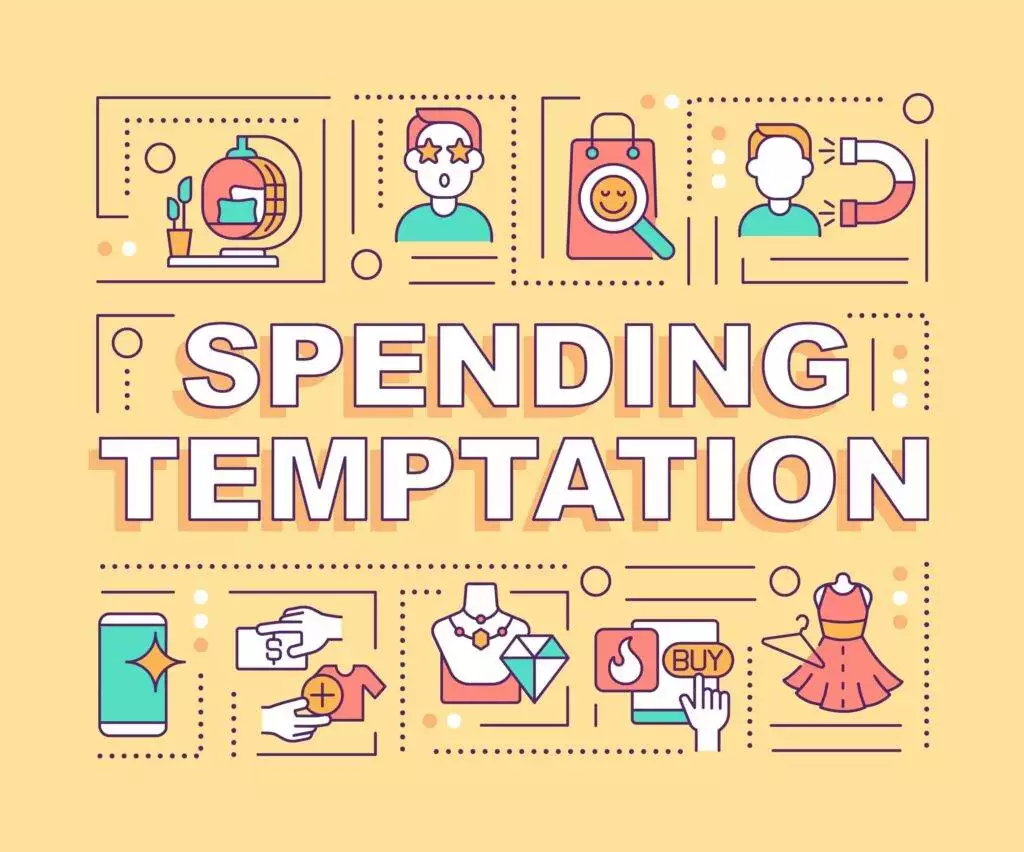It’s a good time to rethink our attitude to money, our personal responsibility and even our financial literacy.
After Black Friday and Cyber Monday to kick off the holiday spending frenzy, household budgets will have to weather the seasonal cuts, meaning nearly two months of continued pressure on wallets.
It’s a good time to rethink our attitudes toward money, personal responsibility and even financial literacy.
Holidays are here
The Christmas and New Year holiday period, and even the school holiday period after that, should be one of the most enjoyable times of the year. But it is not uncommon for irritability or sadness to creep in instead of relaxation and good cheer, even for no particular reason.
Although the vast majority of people, if asked directly, will answer that they look forward to all the possibilities of the holidays, especially if they are marked by a spiritual and family atmosphere like Christmas, often expectations and achievements do not coincide, and this after a period of uninterrupted joy. And then everyone is to blame – husband, children, relatives, friends… but, in fact, no one should be blamed.
There are both objective and subjective reasons why it is sometimes difficult to get through the holidays.
What makes us spend more money during holidays
There is no simple reason why some people are sadder and more depressed during the holiday season. Experts agree that among the most important causes are excessive and unrealistic expectations. They are most pronounced in the areas of family and social relationships, financial opportunities and obligations, and holiday-related activities.
Holidays do not bring magical changes and do not expect relationships to change with a magic wand just because it’s the holidays. If there are family disagreements or (non) collegial intolerance during the year, they will not go away with a polite visit, greeting card or phone call. 
The spirit of optimism and the call to buy various gifts, food, necessary and unnecessary clothing, and miscellaneous odds and ends are so aggressively supported by advertisements, enticing offers, and delays in payment arrangements that it is difficult to resist the collective fever.
At the same time, the financial reality is usually at odds with the desires, and since the pressure is great, there is on the one hand the desire to satisfy the intention to buy, and on the other hand remorse, because your conscience tells you that you are spending money on unnecessary things and too much.
The series of meals that must be prepared, the series of visits that are expected, can be not only an obligation and a pleasure for socializing and meeting, but also a great burden, especially if the organization and procurement and preparation must be done.
Almost all dates (birthdays and anniversaries and especially such holidays full of memories and even a symbolic transition from one year to another), somehow force us to reduce the achievements, life, or at least the annual inventory, to recognize disappointments and face the unfulfilled.
Bad sides of Holiday frenzy
Because of the non-objective tendency to exaggerate one’s “failures,” such stocktaking can very easily lead to depressive thoughts and feelings of dissatisfaction. In addition, sometimes there are objectively sad life situations – some dear and beloved people may no longer be with us. In the anticipation, preparation and nervousness, one may sleep worse than usual, wake up too early or go to bed too late and find it difficult to fall asleep again.
Extensive and sumptuous meals usually accumulate kilos, which he then has to fight with until spring (how do you stay in shape during the holidays?). Even if you do not overdo it and consume a few too many glasses of alcohol, it can lead to headaches and fatigue. The feeling of stress can become a permanent condition, and the feeling of guilt for not being able to cope with everything leads to activities becoming a burden instead of pleasure, and to listlessness and tiredness instead of enthusiasm and energy.
During these holidays, we need to consider the effects of the seasons – a lack of sunlight, hours of darkness, and many cold days. Many people are prone to seasonal mood swings and generally feel worse in the winter. In today’s society, seasonal affective disorder is an accepted medical diagnosis. It is a depressed and lethargic mood during the winter months that begins in the fall, goes through a period of short winter days, and ends again in the spring.
It is thought to be caused by an imbalance in the secretion of neurotransmitters or a deficiency of serotonin, a hormone that promotes good mood. In such cases, little tricks can help: well-lit rooms in which to spend time, adjusting the rhythm of the day to “catch” as much light as possible, weekends spent outdoors being as active as possible.
Spending
Despite the belief that it is in the banks’ interest to borrow and spend as much as possible, banks have worked on finding a balance between citizens’ incomes and spending a lot lately.
In order to establish an ideal relationship between frugality and sometimes excessive (self-) abandonment and intemperance in spending, the authors list five key points of the relationship with money:
1. Emotions and rationality influence how we view money. It also influences our mental functioning and determines our relationships with others.
2. We buy things more often for their representation rather than their actual function.
3. The happiness we have after buying is less than possible because we spend money on the wrong things. 
4. Choice of payment method – cash or card – influences what we buy and how much we spend.
5. Environmental influences can strongly shape our consumption behavior.
How do you maximize happiness from money spent? The answer lies in four simple messages:
1. It is better for us to spend money on others than on ourselves. Our satisfaction in life largely stems from our relationships with others.
2. It is better to spend money on experiences than on things. We can buy cell phones, clothes, and cars or experiences like traveling and going out, but we will be much happier if we spend on experiences.
3. It is better to spend on several small things than on one big thing. Whenever we accumulate material things, we easily become accustomed to them, so we “cheat” ourselves if we buy more small things instead of one big one.
4. Do not focus on single purchases while neglecting other aspects of life. We make a mistake when we focus on how much pleasure we will get from the purchase, no matter how big it is.
Final Thought
It’s hard to resist, but it’s important to be aware. Plan ahead, take care of incoming and outgoing invoices with the help of Invoice Crowd, and enjoy the blades. The point is to have common ground, not another reason to stress.




